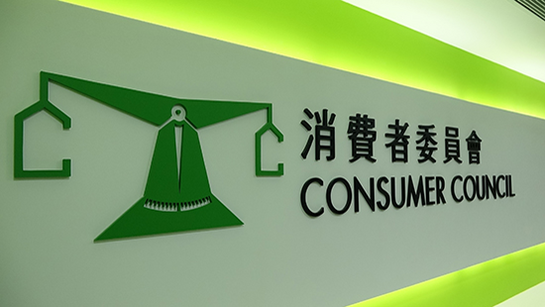- The Consumer Council is delighted to submit its comments on the Copyright ( Amendment ) Bill 2006 from the consumers' perspective.
- First and foremost, the Council stresses that parallel imports are genuine products enhancing consumer choice. Consumers should not be prevented from enjoying such genuine goods through imposition of artificial barriers to free flow of goods from other regions. Restricting parallel imports is tantamount to requiring consumers to pay a high price to companies. Any law that contains such provisions will be regarded by consumers as not a fair and just law. Furthermore, some of the problems raised by copyright owners are economic issues which might be more adequately addressed by other means, i.e., new way of doing things.
Criminal liability against copyright infringement
- As a matter of general principle, while this Council has no objection to the imposition of criminal liability on the seller or maker of pirated copies, this Council considers that the government needs to explain and justify the differential treatment between the protection of intellectual property right as covered by the Bill as against patents and trademarks. The latter two require registration and the measures against infringement of these rights, however, are not as severe as those against infringement of copyright under the existing copyright law or under the Bill.
- Under the Bill, the existing criminal liability for business end-user for possession applicable to the four categories of work of computer programs, movies, television dramas and sound recordings (the "Four Categories") is maintained with the legal professionals and persons providing investigation service exempted.
- The Bill introduces a new business end-user criminal liability for distribution of infringing copies of books, magazines, periodicals and newspapers on a regular or frequent basis. The offence does not apply to non-profit making or Government subvented educational establishments and a safe harbour is provided.
- This Council is pleased to note that there is no criminal liability imposed on non-business end-users under the existing law or the Bill. This Council, however, urges that all business end-user criminal liabilities will be removed at an opportune time.
Employees, directors and partners
- Under the Bill, a statutory defence is proposed for the employees who are not in a position to influence a decision regarding use or removal of the infringing copy (including parallel import for public showing: see paragraph 12 below) of the Four Categories. A similar statutory defence is proposed for employees in relation to the new distribution offence.
- Two new criminal offences are also created for the directors or partners in relation to the existing possession offence for the Four Categories and to the new distribution offence. If a body corporate or partnership commits the said offences, even in respect of parallel import (see paragraphs 10 & 11 below for details), its directors or partners who are "responsible for the internal management" are proposed to have criminal liabilities unless they prove that they did not authorize the criminal act to be done.
- This Council has grave reservation over the reversed burden of proof and considers that the provisions are not only too harsh on the employees, directors and partners, especially in offences relating to parallel import, it has fundamentally changed the element of the criminal justice system. Moreover, it is noted that no similar employee defence is provided for employees who incur criminal liability under Section 118(1)(d) for selling or letting for hire parallel import within 9 months of publication date (see paragraph 11 below).
Parallel import
- The Bill proposes to reduce the criminal liability period from 18 months to 9 months. It also proposes that the existing civil and criminal liabilities in relation to possession and importation will be removed but the removal will not apply to musical sound recording, musical visual recording, television drama, and movie to be played or shown in public unless the user is an educational establishment or a specified library. Moreover, commercial dealing (including selling, letting for hire) of parallel imports of all kinds of copyright work except computer programs irrespective of the work's publication date continues to incur civil liabilities and, where the publication date is within 9 months, incur criminal liabilities.
- In other words, even after the Bill is passed, a body corporate or person that sells or lets for hire parallel imports of movie VCDs, books or any kind of copyright work except for computer program will incur civil liabilities. A body coporate or person that sells or lets for hire parallel imports of movie VCDs, books or any kind of copyright work except for computer program will incur criminal liabilities if the publication date is within 9 months.
- Moreover, a body corporate or person that possesses parallel imports of movie VCDs, television drama VCDs, musical sound recording or musical visual recording for public showing or playing will incur criminal liabilities if the publication date is within 9 months.
- Employees (who are in a position to influence a decision regarding use or removal of the parallel import) of the body corporate in paragraph 12 above, all kinds of employees (as there is no statutory employee defence provided) in paragraph 11 above, and directors (who are "responsible for the internal management") of the body corporate in paragraph 12 above have criminal liability too.
- This Council maintains its stance that all civil and criminal liabilities relating to parallel imports should be removed on the ground that parallel imports are genuine products enhancing consumer choice and consumers should not be barred from enjoying such genuine products by the artificial barriers imposed against free flow of goods from other regions. As stated in paragraph 2 above, restricting parallel imports is tantamount to requiring consumers to pay a high price to companies and economic issues should be addressed by means other than legal.
Circumvention of effective technological measures
- It is noted that the new criminal or civil liabilities introduced under the Bill do not apply to an effective technological measure if, among others, the measure contains regional coding or otherwise has effect of restricting access for purpose of controlling market segmentation.
- This Council is of the view that no civil remedies and no criminal sanctions should be introduced against circumvention of any copyright protection technological measures because such measures prevent the use of genuine parallel imports e.g. genuine parallel imported games software. This Council supports the exemption as mentioned in paragraph 15 above. This Council, however, urges the Government to ensure effective implementation of the exemption.
- Techonological innovation is to be encouraged and the Council cautions against indiscriminatory prohibition against circumvention technology which might inhibit market advancement in technology.





